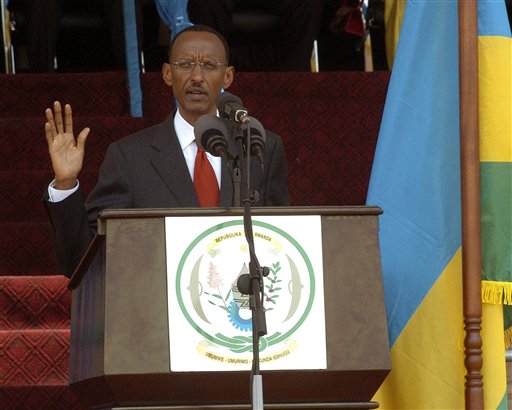College president who hired Rwandan professor accused of genocide tries to uncover truth
By Becky Vlamis

College president who hired Rwandan professor accused of genocide tries to uncover truth
By Becky Vlamis
In a recent article for New York magazine, Ungar writes that bringing academics like Munyakazi was an “increasingly fashionable way for colleges and universities to give shelter to intellectuals from around the globe threatened by government repression, civil strife, war or the pinch of intellectual and political cultures less accommodating than their own.”
He continues: “We flattered ourselves that we had done that rare thing, a purely good deed, striking a blow for the cause of intellectual freedom while bringing an honorable man to campus.”
To be sure, Munyakazi brought attention to the school but of a different kind: He was arrested and accused of links to the Rwandan genocide of 1994. The allegations caused a minor media storm four years ago, including, notoriously, NBC.
Munyakazi strongly denies any wrongdoing. No formal charges have ever been filed, but he lost his job at Goucher over the controversy. While he remains in Maryland, Munyakazi has struggled to make ends meet ever since.
Today on Worldview, Ungar shares his quest to uncover the truth about Leopold Munyakazi and examines what his case says about the murky politics of genocide.
Incidentally, before he became Goucher’s president, Ungar ran the government news agency Voice of America. In 2001, he met with Rwandan officials to bring VOA content to the country’s airwaves. The experience left him with the impression that the Paul Kagame government had healed the country.
After investigating Munyakazi’s background, he’s less certain. Kagame has severely curtailed freedom of the press. People that don’t strictly adhere to his government’s line on the genocide often end up behind bars.
Ungar says that even the term “genocide” is tricky. While Ungar certainly doesn’t dispute that Hutus massacred Tutsis in 1994, the designations themselves are arbitrary. “It’s like saying people on the North Side of Chicago are Hutu and people on the South Side are Tutsi.”
His four-year obsession has led him to muse about the nature of humanitarianism and whether you ever can do something uncomplicatedly good. “Reluctantly, I’m coming to the conclusion that there are always complications,” he said.